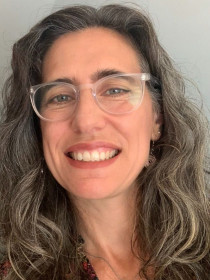
Lori Freedman
Connect with Lori
About Lori
Freedman conducts research with Advancing New Standards In Reproductive Health (ANSIRH), a program of the Bixby Center for Global Reproductive Health at UCSF. Dr. Freedman investigates the ways in which reproductive health care is shaped by our social structure and medical culture. Primarily a qualitative researcher, her work has focused on how institutional policies restrict abortion and other reproductive care, especially within Catholic hospitals.
Contributions
In the News
Publications
Examines hospital restrictions on postpartum contraception due to religious affiliation restrict access, cause unnecessary delays in care, and lead to misdiagnosis and marginalization of contraceptive care. Reviews that restrictions also cause moral distress to providers who balance career repercussions and professional integrity with patient needs.
Suggests large employers have leverage to improve access to reproductive health services and providers. Argues that large employers could pressure insurance carriers to address network gaps in access to care resulting from religious restrictions.
Uses a nationally representative study of women of reproductive age to find that while 34.5% of women consider it important to know a hospital’s religious affiliation when seeking care, 80.7% consider it important to know a hospital’s religious restrictions on care. Additionally, a majority (two thirds) of women find religious restrictions on care during miscarriage management unacceptable.
Qualitative research that follows up on a national survey that revealed that over half of obstetrician-gynecologists working in Catholic hospitals have conflicts with religious policies. Because the survey did not elucidate the nature of the conflicts, Freedman and Stulberg’s qualitative research examines the nature of physician conflicts with religious policies governing ob-gyn care. Results pertaining to restrictions on the management of obstetric complications are reported here.
Explores the social world where abortion politics and medicine collide. Discusses why physicians rarely integrate abortion into their medical practice. Demonstrates that willing physicians are further encumbered by a variety of barriers within their practice environments. Draws from forty in-depth interviews and presents a challenge to a commonly held assumption that physicians decide whether or not to provide abortion based on personal ideology. Examines physician narratives and how their choices around learning, doing, and even having abortions themselves disrupt the pro-choice/pro-life moral and political binary.